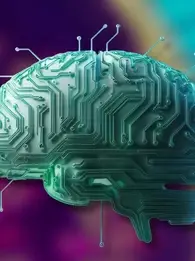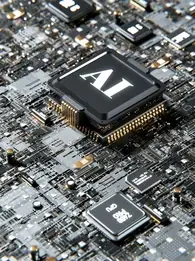
The term ‘uncanny valley’ is used in robotics to describe androids that look so achingly close to real humans that it is, as the name suggests, uncanny. Not quite human, but not far off.
This feeling stems from a disconcerting truth: machines are now constantly testing the rules of what we regard as wholly human characteristics.
And it’s a conversation that can now be applied more broadly across tech – particularly with the advance of Emotionally Intelligent AI (EAI).
We might now be entering a new uncanny valley for both narrow and broad AI – where these systems become incredibly good at understanding and predicting the whims of human feelings. Our lives are increasingly supported and enhanced by algorithms that appear to understand all facets of human emotion.
So the question now being asked across the industry is, ‘can our tech become genuinely emotionally intelligent?’
All the evidence suggests it probably can.
Google’s recent voice experiment was a great example of how a few vocal inflections, coupled with an incredibly smart conversation system, can produce spectacular results.
It caused debate - is this too far? But these systems will heighten the human experience, rather than cheapen it. And that’s the key. Tech should improve our lives – but shouldn’t be allowed to make us feel redundant in the process.
It’s clear that there is an appetite for more EAI tech - many of us want and expect it to enrich our lives.
Our recent research shows that more than one in three (35%) 16-24 year olds believe that technology can help them become more emotionally intelligent, with 55% saying it will help them be more aware of others’ feelings.
The challenge, then, is figuring out how to reap the emotional benefits of EAI while keeping the human experience at the centre, not the periphery.
At the cutting edge of AI research, people like Elon Musk are trying to sync us up to computers with direct brain links – as a way of ensuring we co-evolve with the machines and don’t get overtaken.
While this is undoubtedly an exciting area of research, it is very much focused on super-intelligent, general AI (as well as some pretty invasive surgery).
But what about the ‘narrow’ AI that we’re already using every day? Things like our social media news feeds – and recommendations and reminders? The intelligent systems that help us interact with one another and help us make better decisions and expressions are arguably a far more real and present reality.
I believe the way to make these systems succeed in our lives is to make sure we’re helping humans with their decision-making process, rather than taking it over entirely.
EAI should be using its understanding of our feelings and its ability for non-bias to generate lots of options designed for great emotional impact – but shouldn’t be taking shortcuts around our own personal choice.
That way, we can access greater emotional intelligence than on our own, without ever feeling like the machines are taking over.
When we apply this logic to the world of personalised gifting, it means understanding people’s emotions effectively and offering them great recommendations and celebrations that their families and friends will love. And people are optimistic - 45% of young people believe AI will be better than they are at finding a gift for a loved one within the next two years.
But we must temper these with enough human-centric options that the customers don’t just feel like a robot is doing everything. Because that would take away their power and the thoughtfulness of a personalised gift.
If the balance is struck well, it will mean customers can buy better gifts for their friends and loved ones, which have greater emotional impact, but still very much feel like a human-to-human encounter.
Because people don’t give gifts to be perfect – they give them to be personal. A signal of love or appreciation. Our job is to use tech to amplify that personal touch, rather than completely negate it. And there should be no trade-off. Rather, an intuitive service just improves as it interacts, and the presents still feel completely personal. We want our algorithms to help our customers be the best versions of themselves when gifting.
The journey through the new uncanny valley is, ultimately, one that can only be charted by real human decisions. And that’s just the way it should be.













Comments ( 0 )